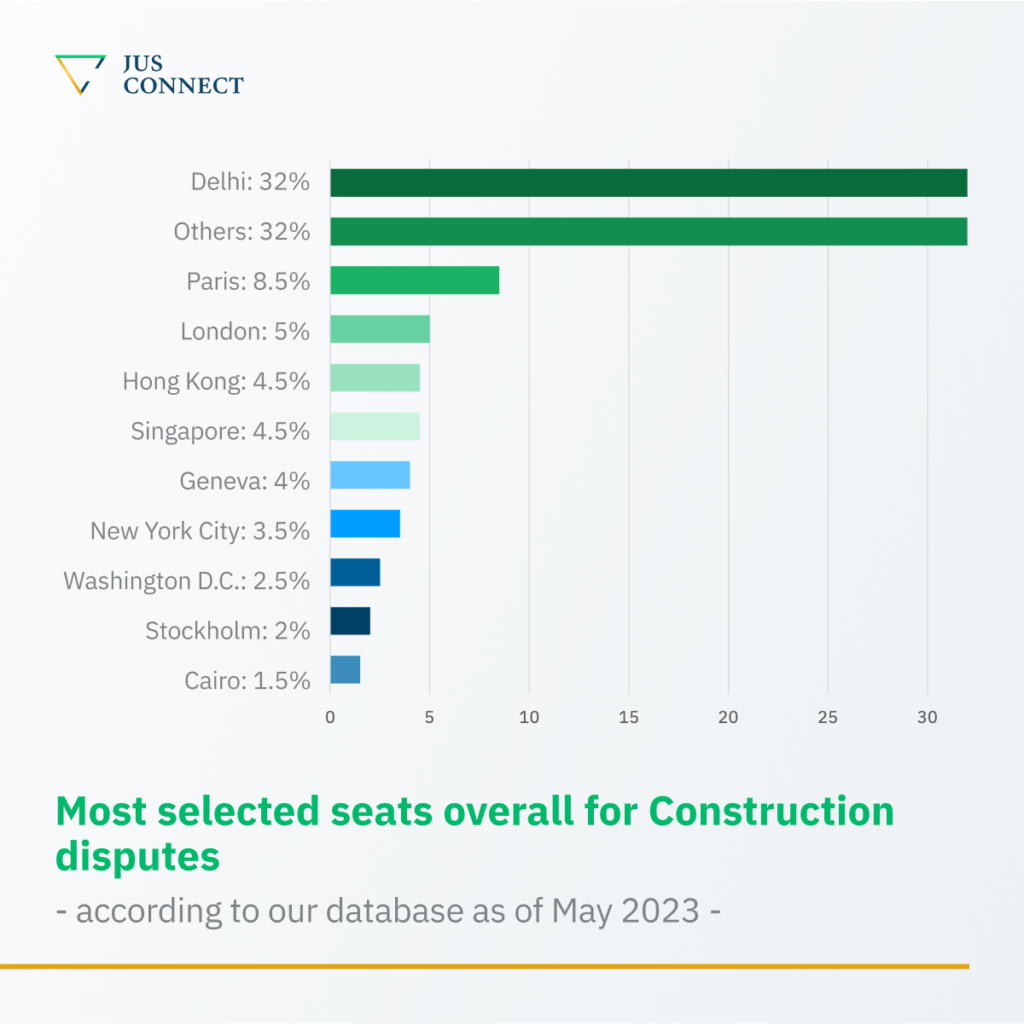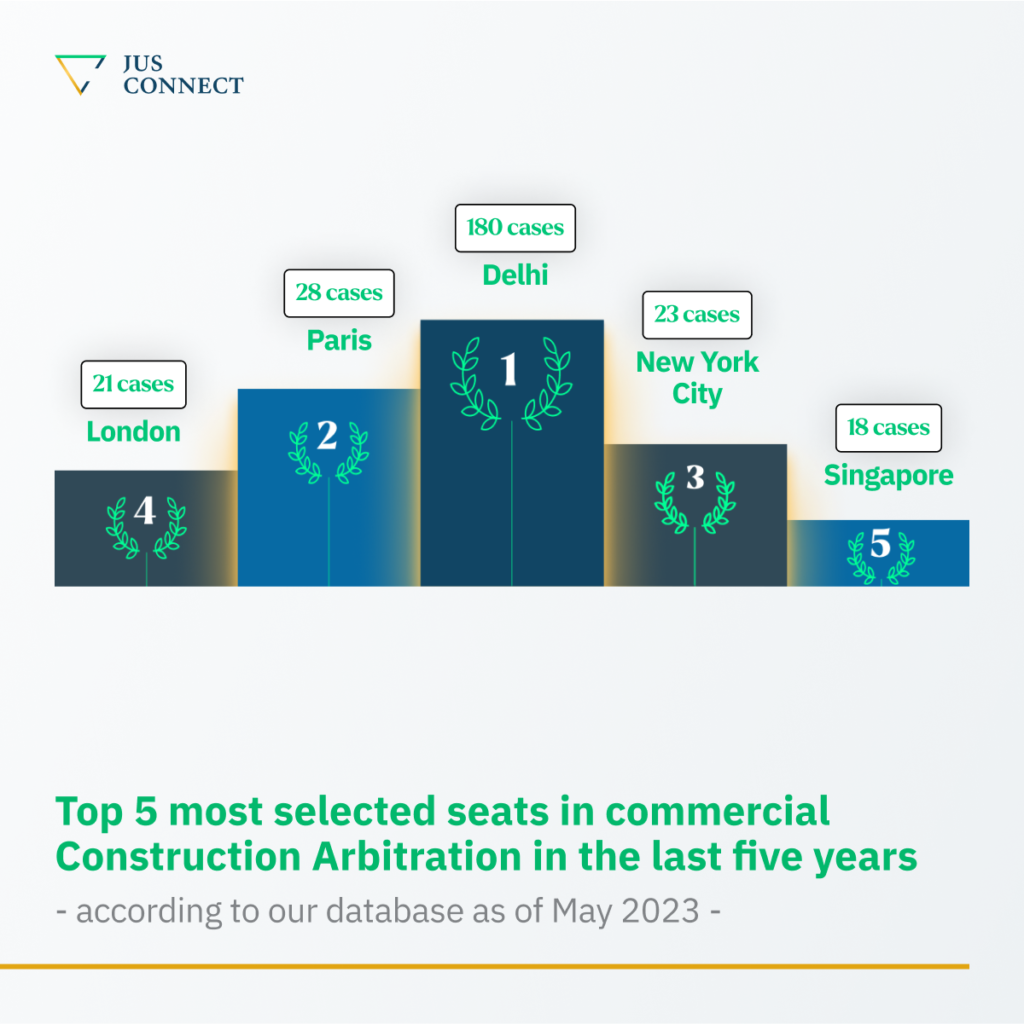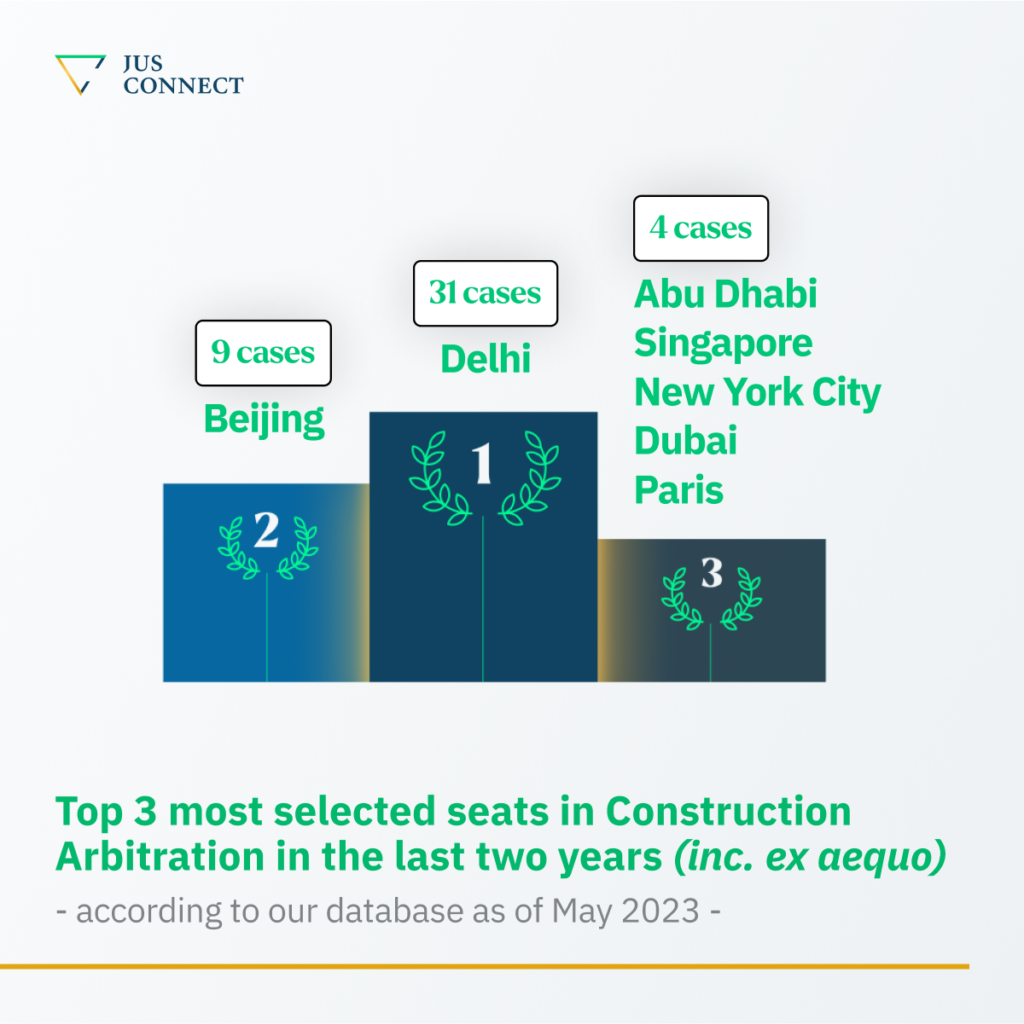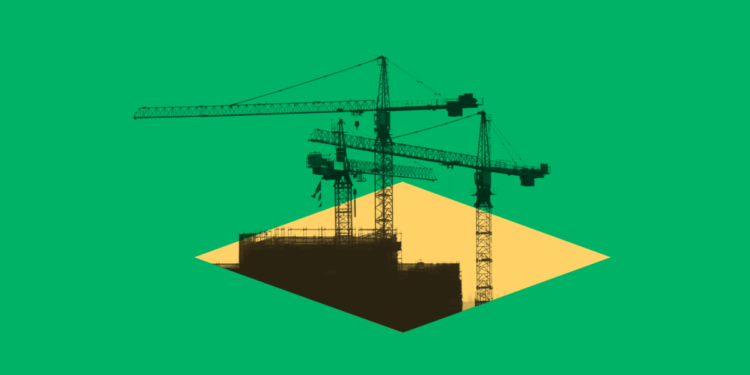This ranking was featured in our 2023 Construction Arbitration Report, which is part of a series of industry-focused arbitration reports edited by Jus Mundi and Jus Connect.
This issue explores the construction industry and presents a goldmine of information based on data available on Jus Mundi and Jus Connect as of May 2023. Discover updated insights into construction arbitration and exclusive statistics & rankings, as well as in-depth global and regional perspectives on construction projects, disputes, & arbitration from leading lawyers, arbitrators, experts, arbitral institutions, and in-house counsel.

Key Takeaways

Delhi is the most represented arbitral seat in construction arbitration in our database. Efforts have been made in the last decade to make the jurisdiction more arbitration-friendly, including through amendments in 2021 to the country’s Arbitration and Conciliation Act 1996. Although recent amendments to this Act in the last decade have sometimes been controversial, it is believed that India inspires to catch up with other pro- minent seats in the region, e.g., Singapore and Hong Kong, and become an international arbitration hub.
The country has made improvements to appear more open internationally and attract foreign parties to arbitrate their cases in India. For now, the jurisdiction still has many restrictions that may make it appear less arbitration-friendly than other major hubs in the region.
The usual suspects follow, namely Paris, New York City, and London. They are arguably the biggest global arbitration hubs, so it makes sense they would once more appear as some of the most popular seats. They are trusted seats within arbitration-friendly jurisdictions.
Singapore keeps growing further and is now a strong reference, both in APAC and globally. Singapore’s changes to its arbitration law in the last few years have undoubtedly played a positive role in this increase in trust and cases seated there.

According to our data, more diversity in seats for construction arbi- tration has emerged in the last two years. Beijing and Abu Dhabi are now taking an increasingly important place among seats of arbitration
in construction disputes in their respective regions. As previously men- tioned, arbitral institutions in China and the Middle East are also growing their caseload as infrastructure projects exponentially develop across these regions.
According to our data, São Paulo (Brazil) is a rising seat for construc- tion arbitration in Latin America, as well as Bogota (Colombia) and Lima (Peru).
The Centre for Arbitration and Conciliation of the Chamber of Commerce of Bogotá (CAC-CCB) and the Center for Arbitration and Mediation of the Chamber of Commerce Brazil-Canada (CAM-CCBC) have both handled a number of construction cases in the last decade.
In commercial arbitration, regional parties in LATAM tend to prefer a local seat of arbitration, which is not the case when at least one of the parties involved is foreign, even when the object of the dispute or matter is set in the region.
The development of Brazilian arbitral institutions and seats is largely due to the favorable Brazilian Arbitration Act (BAA) enacted 26 years ago. Since then, commercial arbitration has become the country’s most com- monly used method of alternative dispute resolution.
Unfortunately, this may all change if the Brazilian Congress approves Bill No. 3,923/21 — meant to amend the BAA. According to the Brazilian Arbitration Committee (CBAr), the main arbitration entity in Brazil, the changes proposed in the bill increase legal uncertainty and weaken the country’s entire arbitration system. Its approval would represent a real step backward, as it promotes undue interference by the State in private proceedings.
This demonstrates how crucial the choice of an arbitration seat can be. However, a recent Swedish example proves that arbitration can still remain unpredictable, even in a trusted and arbitration-friendly seat. It is extremely rare for arbitration awards to be set aside in Sweden. Yet, in Minmetals v. Chelyabinsk Metallurgical Plant, the Svea Court of Appeal set aside the award dated November 9, 2017. In its November 2022 judgment, the Court found that the arbitral tribunal has partially exceeded its mandate. The arbitral tribunal was composed of Boris Karabelnikov, appointed by the respondent, Boris Kojevnikov, appointed by the claimant, and Eva Kalnina, president of the tribunal. The award was challenged and set aside on the grounds that the arbitral tribunal relied on facts that had not been argued, failed to rule on an issue, and awarded unclaimed compensation.
Find more data-backed insights in our 2023 Construction Arbitration Report





